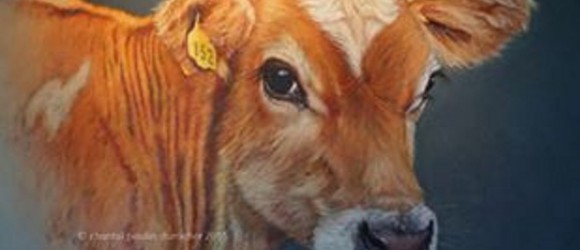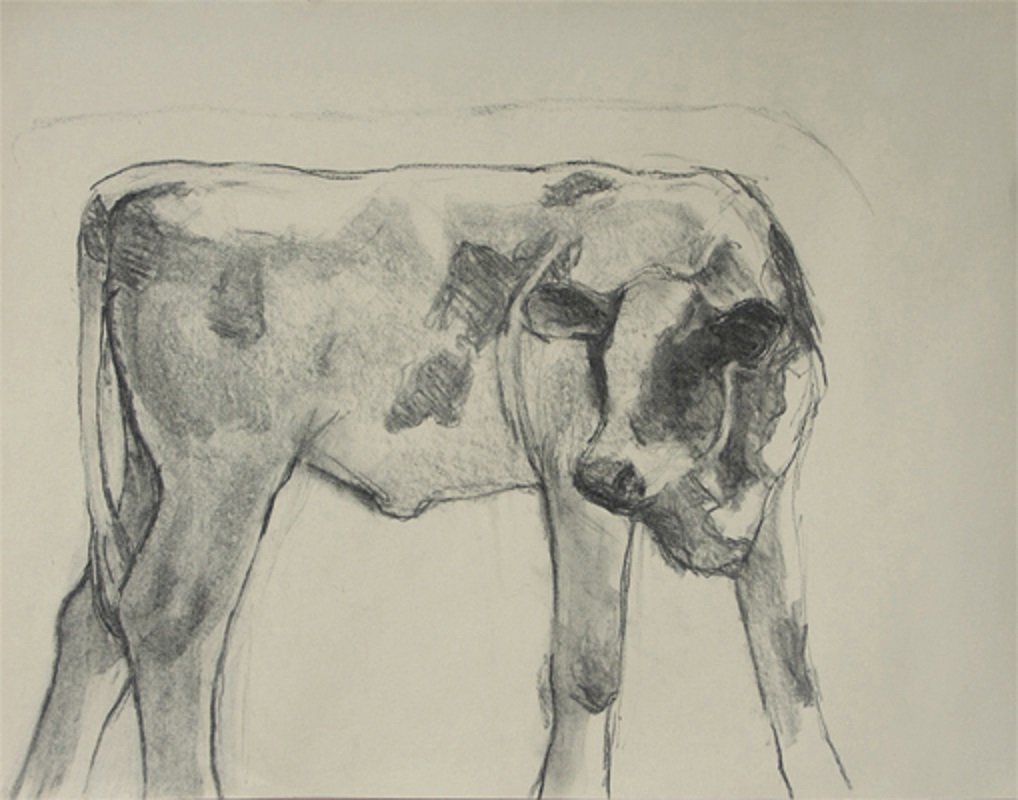The Crate
- At August 06, 2015
- By Rosemary Wright
- In Guest Writers
 0
0

The Crate
And Violence Begets Violence
The Crate – “Just chuck it over there!” She didn’t hear the words as they pulled her, as a harbor worker might heave upon an old hawser, from her mother’s womb. Two hands tightened on her ankles and hauled, dragging on her limbs, extracting her, as wet and slippery as an eel, from the birthing canal. “Hurry up, there’s more where she came from!”
Guest Writer
Mark Stewart
The speed and violence of the exchange, the warmth and protection of the womb for a cold concrete floor, leaves her utterly dazed. She is deposited on the floor in the same way that a butcher’s boy might sweep the day’s leavings into the gutter. The fishmonger hands have left her, at least for the time being, but she can still feel their imprint on her flesh, which has already started to bruise.
Air finds its way into her lungs through the torn sac of mucus that still covers much of her body. She tries to stand but her legs simply aren’t equal to the task. Dimly she is aware that her mother is nearby; perhaps it is just as well that she can’t see the rough handling that keeps the two of them apart: the shoves and the kicks and the repeated pushing away of her mother’s face. Abandoned on the floor of the birthing shed she is already alone. Before she can find her feet she is thrown onto a barrow. And from there she goes to the place she will never leave.
Alone in a crate so small that she can only face in one direction. She cannot turn around to pace inside the plastic box for it is too small for that. The container is too narrow to be called a prison cell. It is an upright coffin, a buried cave awash with darkness, a tomb sealed with a door that will never open. Forever trapped inside this obsidian vault she lacks even the dubious consolation of time, of being able to mark its passage if not by scratching out a rudimentary calendar upon the wall then at least by noting the procession of sun and moon across the sky. The best that can be said is that she is not quite dead; but then neither is she fully alive. There is milk to drink but nothing to eat. Her existence is a single continuous nullity, devoid of all sensation; the short book of her life will be a catalogue of absences.
Hers is a life lived at the bottom of a well, a subterranean existence. Her skin lacks all substance, as if she is disappearing into the very air, like a wraith. The walls of the crate become narrower with each heartbeat, until it seems as if the walls are pressing on her pelt. Her blood grows thin, thinner than her unused limbs, as thin as a thread stretched between worlds. Her heartbeat barely registers inside her chest, as attenuated as a radio signal lost in the ether. Cataracts form on her eyes, two misty plates that float on her retinas, compounding the darkness yet further; while pressure sores form on her legs, weeping ulcers that give a new dimension to her torment.
Do not think for one moment that she does not know, that she does not understand what has been taken from her – that the open pasture, the taste of her mother’s milk, the feel of grass beneath her feet and hay in her mouth, the broad summer sky beneath which she might have roamed, the companionship of others of her kind – that all these things are unknown to her. Even newly born they are known and yearned for.
The crate is her entire universe. Once the door to this castle-keep closes it will never open again. Entombed in darkness, she journeys on, like an astronaut locked inside their sterile capsule, falling away from the sun day by day, week by week, month upon month. Except that her capsule is far from sterile. She sits (for by now she no longer has the strength to stand) in an acid bath, her urine and faeces as corrosive as rocket fuel, her body dissolving in the toxic darkness.
Her life ends the way it began with a hard shove, with a grip that has never been tender. The fishmonger hands wrap themselves about her neck and she can feel herself held in a vice. At the end her legs give way just as they did when she was born and once more her knees are upon a hard floor. The wound in her throat is obscenely intimate, a sliding, slithering penetration, a breaking of boundaries that should never be crossed.
Hers is a journey that can have only one destination: all that is left, after her bones have been crushed for fertilizer and her less tender meat taken for dog food, is thrown – as one might dispose of an old carpet – into a communal grave, the earth packed down tight, as if to deprive her of sunlight even in death. Within minutes the crate has a new occupant, one that stands and stares at the walls, blinking in the gloom, wondering where her mother is. “Hurry up, there’s more where she came from! Just shut the door, she aien’t going anywhere!”
The calf was just ninety days old.
“What would Madame like to order? May I suggest the veal?”
“The veal? Why not? I haven’t had veal in ages.”
“Go on, darling. Spoil yourself. The veal it is, for both of us.”
Mark Stewart
August 2015
For similar stories please visit: https://www.facebook.com/thescreamingplanet
Artist illustrations:
Sketch by kind permission of Alexandra Klimas: www.klimas.nl
Portrait by kind permission of Chantal Poulin: https://www.facebook.com/chantal.poulin.5



Follow – A BEATING HEART